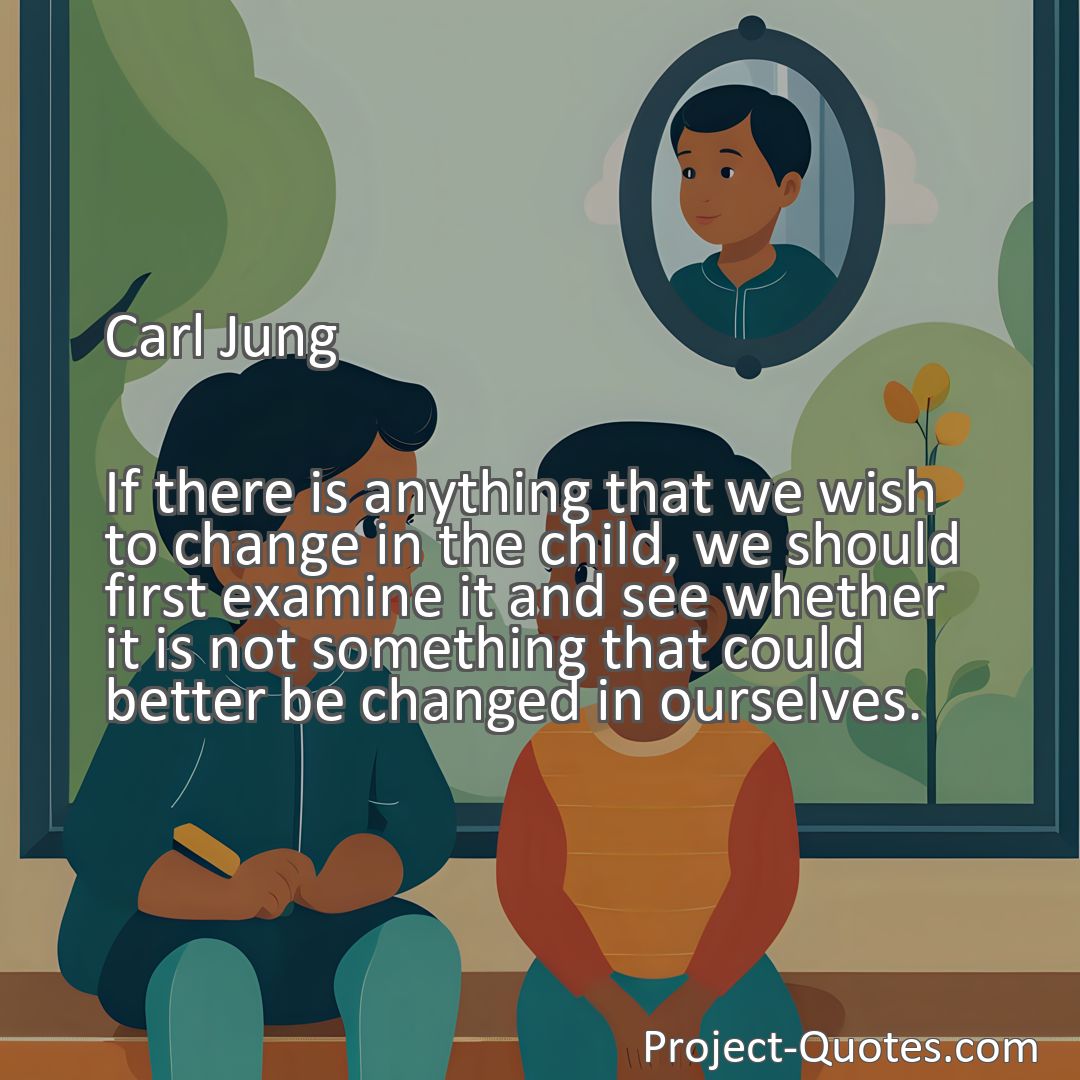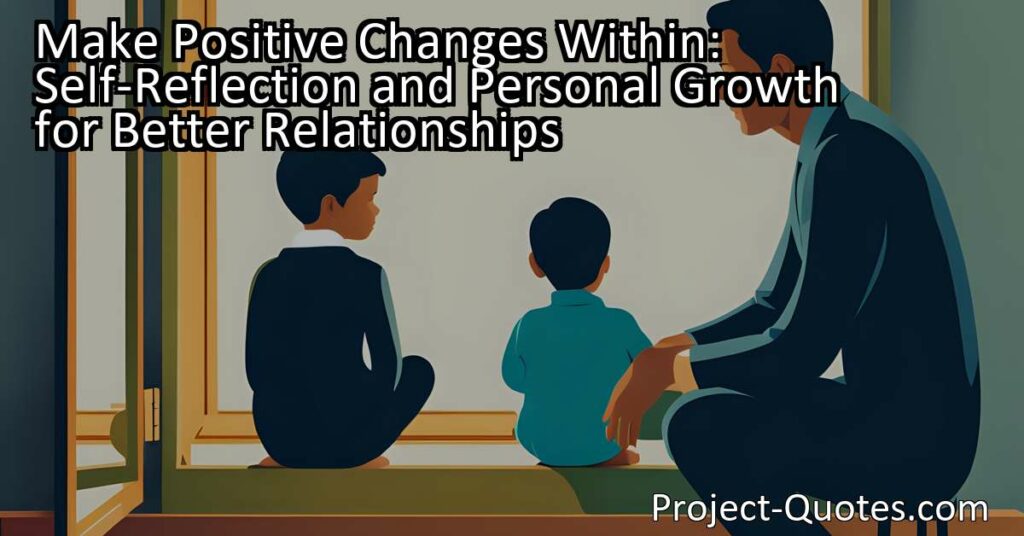If there is anything that we wish to change in the child, we should first examine it and see whether it is not something that could better be changed in ourselves.
Carl Jung
“Make Positive Changes Within: Self-Reflection and Personal Growth for Better Relationships” reminds us to reflect on our own behavior and make improvements within ourselves before trying to change others. This quote encourages self-awareness, leading by example, and personal growth, ultimately creating a better world for everyone. Remember, change starts from within.
Table of Contents
- 1 If there is anything that we wish to change in the child, we should first examine it and see whether it is not something that could better be changed in ourselves.
- 2 Carl Jung
- 3 Meaning of Quote – If there is anything that we wish to change in the child, we should first examine it and see whether it is not something that could better be changed in ourselves.
- 4 Freely Shareable Quote Image
- 5 Related
Meaning of Quote – If there is anything that we wish to change in the child, we should first examine it and see whether it is not something that could better be changed in ourselves.
Have you ever noticed that sometimes we tend to focus on changing things in others rather than looking at ourselves? The famous quote by Carl Jung, “If there is anything that we wish to change in the child, we should first examine it and see whether it is not something that could better be changed in ourselves,” challenges us to reflect on our own behavior and make improvements within ourselves before attempting to change others.
When we read this quote, it’s important to understand that the term “child” refers not only to actual children but also to individuals in general. It serves as a reminder that we often project our own insecurities, biases, or shortcomings onto those around us instead of taking a step back and evaluating ourselves first. This quote encourages us to be introspective and strive for personal growth, ultimately leading to better relationships and a more positive environment for everyone involved.
One of the key lessons we can draw from this quote is the idea of self-awareness. By examining our own behavior and attitudes, we become more conscious of our own shortcomings and have a greater understanding of how our actions impact others. This self-awareness allows us to be more empathetic and compassionate when dealing with people, particularly children who are still developing and learning from the world around them.
Let’s consider an example to better illustrate this concept. Imagine a situation where a child is frequently interrupting others during class discussions. Instead of immediately reprimanding the child or trying to change their behavior, it is important for us to reflect on our own communication skills. Are we effective at creating a safe and inclusive environment where the child feels genuinely heard and valued? Are we modeling respectful and attentive listening? It is possible that by changing our own approach and behavior, we can positively influence the child’s actions and encourage them to become better listeners themselves.
Another angle to explore is the power of leading by example. Children often learn through observation and mimicry, and this quote reminds us of the impact our own actions can have on them. If we wish for the child to show patience and respect, it is essential for us to embody these qualities ourselves. By being mindful of our behavior and consistently demonstrating the values we want to instill in others, we can encourage positive change within them.
In addition to self-awareness and leading by example, this quote highlights the importance of personal growth and self-improvement. Instead of merely pointing out flaws or criticizing others, we should focus on identifying areas where we can develop and become better individuals. This not only benefits us as individuals but also creates a more constructive environment for children to grow and learn.
It’s important to remember that change is a gradual process and cannot be forced upon others. By taking the time to examine ourselves and make positive changes within, we create a more nurturing and supportive environment for children to thrive. This approach helps foster understanding, empathy, and mutual respect, allowing us to build strong and meaningful connections with the younger generation.
In conclusion, Carl Jung’s quote serves as a gentle reminder to look inward before seeking to change others. By examining our own thoughts, actions, and behaviors, we can better understand our role in shaping the world around us. This not only applies to our relationships with children but also to our interactions with people of all ages. Let us strive for self-awareness, lead by example, and pursue personal growth, ultimately creating a better world for everyone. Remember, change starts from within.
I hope this quote inspired image brings you hope and peace. Share it with someone who needs it today!


